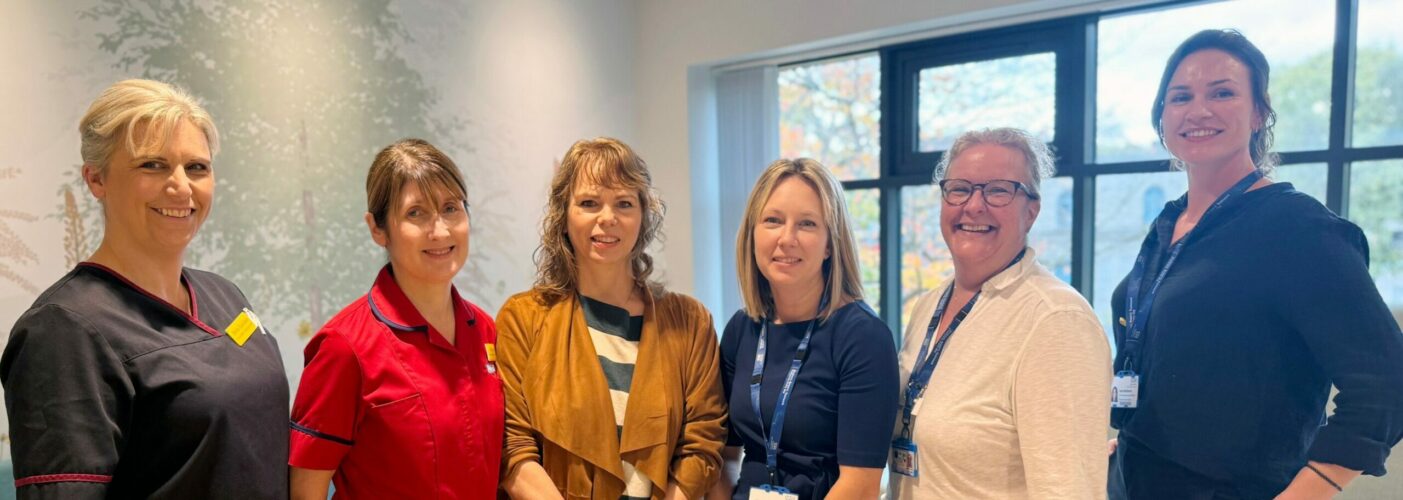
Spotlight
New self-referral system speeds up breast cancer diagnosis in Somerset
A new self-referral pathway for people with symptoms of breast cancer is giving patients in Somerset faster access to specialist care, while reducing pressure on GP services.
Since its launch nine months ago, over 600 people have self-referred directly to our breast diagnostic clinic, without the need for a GP appointment.
Somerset NHS Foundation Trust was the first in England to introduce this pathway, which is accessed via NHS 111 online - a national digital triage product designed to help people reach the right level of care for their symptoms – and the NHS App.
It allows eligible patients with worrying symptoms, such as a breast lump, to be referred straight to a breast diagnostic clinic, speeding up cancer diagnosis and freeing up valuable GP appointments.
It’s also in line with the recently published NHS 10 Year Plan, which focuses on earlier diagnosis and prevention.
Rosie Edgerley, our cancer programme manager, says: “The introduction of the self-referral system is a significant step forward in supporting people with breast symptoms.
“By enabling patients to bypass their GP and be referred directly for specialist assessment, we are helping them to be seen more quickly during what can be an anxious and worrying time.
“This new pathway means patients get the reassurance or treatment they need sooner, while also easing pressure on our GP colleagues.”
Miss Caroline Osborne, one of our consultant breast surgeons, adds: “This is a very exciting new self-referral pathway for people with concerning breast symptoms that will allow them to be assessed by the specialist team at the earliest opportunity.
“For most people referred, we will be able to reassure them that their symptoms are not related to breast cancer.
“There will, sadly, be some people who do have breast cancer, and for them, the 111 online referral route could result in an earlier diagnosis of breast cancer, which is something we always strive for.
“We know that when a breast cancer is diagnosed early, it gives us the best opportunity for successful treatment of the disease.”
Shaida Tanweer, senior product manager at 111 online, adds: “This is about using technology to make access simpler and safer. Patients get faster reassurance or diagnosis, while the NHS benefits from a more efficient pathway. It shows how digital-first services can deliver real change in cancer care.”
One in seven women in the UK develop breast cancer during their lifetime, and it’s more common in older women.
There are several factors that can influence someone’s risk of breast cancer including their age, weight and family history. In addition, some environmental factors such as alcohol consumption and smoking add to the risk of breast cancer.
Breast cancer symptoms can include:
- a lump, or swelling in your breast, chest or armpit
- a change in the skin of your breast, such as dimpling or redness
- a change in size or shape of one or both breasts
- nipple discharge (if you are not pregnant or breastfeeding), which may have blood in it
- a change in the shape or look of your nipple, such as it turning inwards or a rash on it
Breast lumps are very common and can be caused by other harmless conditions, and having some of these symptoms does not definitely mean a person has breast cancer.
Breast cancer is the most common cancer in the UK, Cancer Research UK says, with about 55,500 women and 370 men diagnosed in the UK each year.
In the UK, from the age of 50, women with no obvious symptoms are invited for a mammogram every three years to check for breast cancer, known as breast screening.
Find out more or make a self-referral.
More information about cancer self-referrals in Somerset is here: Somerset cancer self-referral - Cancer services - Somerset NHS Foundation Trust

